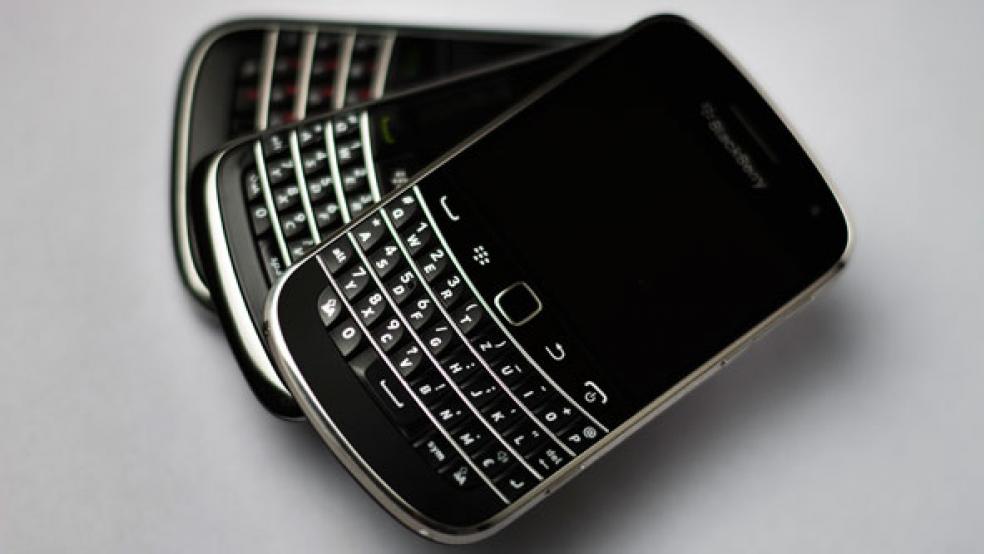The story below originally reported that the Pentagon had announced it would purchase 80,000 new BlackBerry smartphones. That was incorrect and was based on a misreading of the Defense Department’s press release. The Fiscal Times regrets the error.
News reports this week that the Pentagon would purchase 80,000 BlackBerry smartphones – including one published by The Fiscal Times – helped send shares of the troubled mobile phone company soaring. The stock has fallen about 5 percent today after the Pentagon clarified that it had not placed any new orders for BlackBerry devices.
In a statement provided to The Verge, the Defense Department said:
“Absolutely no new orders have been placed for new BB devices. The DISA press release put out Jan. 16 never alluded to any devices being purchased. The 80,000 BBs and 1,800 non-BB devices referenced in the release are legacy systems already in DoD inventories.”
What had seemed like a solid win for BlackBerry turns out to be just more of the same for a business that has been on the ropes and had a dismal 2013. Last year, BlackBerry lost $4.4 billion and saw its stock price fall 33 percent.
Posted January 21:
BlackBerry has been on the ropes for years, struggling against younger, hipper phones like the Android and iPhone. In a huge bit of luck, the Department of Defense just threw the company a lifeline.
Late last week, the Pentagon announced it would purchase 80,000 BlackBerry smartphones that will be the primary device supported on a new military network as part of a mobility push. That sent the Waterloo, Ontario company’s stock soaring on the Toronto stock exchange Monday, pushing the stock price up 18 percent. Tuesday, it was up more than 9 percent on the NASDAQ.
Related: Nokia vs. BlackBerry: A Smartphone Battle for Survival
This is great news for BlackBerry, which had a dismal 2013. It lost $4.4 billion and saw its stock price fall 33 percent.
The company has been on a bit of a roll lately. A Citron Research report said last week that the company would reach a stock price of $15 per share. That forecast, combined with the Pentagon contract, has investors bullish on BlackBerry.
There is other good news as well: Last month, the company finalized a deal with FIH Mobile to create a handset, which will give BlackBerry the opportunity to move away from its reliance on phone sales.
It’s a far cry from the heady days of 2008, when the stock was trading at $148. But it shows that CEO John Chen’s plan to transform the company seems to be working.
Related: Three Top Blackberry Execs Leave in Management Shakeup
It also shows just how much a contract with the Pentagon can make or break a company. Although unpopular with soldiers, Pentagon officials have said that BlackBerry phones have the security needed to transmit sensitive data.
The purchase is part of a larger push to secure data in the wake of Edward Snowden’s leaks. Right now, the Pentagon is in the middle of a $5 billion plan to safeguard classified materials in an effort to prevent potential leakers from easily making off with data.
This article has been updated to correct the number of Blackberry smartphones ordered. The Defense Department ordered 80,000 BlackBerry devices, not 800,000. The Fiscal Times apologizes for the error.
Top Reads from the Fiscal Times:
- U.S. Spends Billions in World’s Most Corrupt Country
- Killer Robots: If No One Pulls the Trigger, Who’s to Blame?
- U.S. Drones Could Decide the Battle of Fallujah





